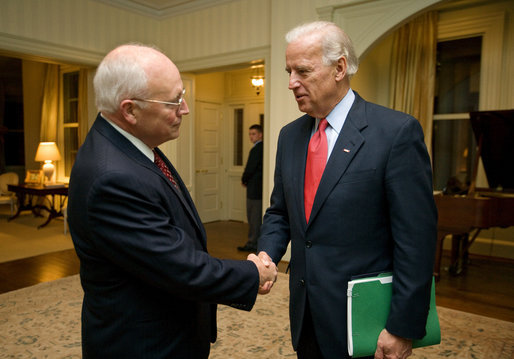[Photo by Kevin Winter/Getty Images]
Russell Simmons is the latest face of controversy following a fiasco involving a RushCard glitch that prohibited thousands of customers from accessing their accounts. According to The Grio, it all started when a number of RushCard customers did not receive their scheduled direct deposits, consisting of paychecks, government benefit checks, and electronic funds transfers.
Many customers reported that their accounts reflected zero balances as if their deposits were never received, but the employers who sent deposits made it clear that the problem wasn’t on their end. As expected, Russell Simmons and the RushCard company – which markets to low-income Americans unable to obtain accounts with regular banking institutions – have received a flood of complaints via Facebook, and quickly attempted to resolve the staggering number of complaints.
Many frustrated cardholders have taken to social media to voice their concerns. Some news outlets have even slammed Russell Simmons and RushCard for exploiting the poor. The card debacle has placed emphasis on the number fees required to get and obtain a RushCard.
I cut up my @rushcard, stepped on it, got in the car and drove over it, hit reverse to back over it again, then got out and spit on it! #BYE— Tonya (@Tee2theB) October 23, 2015
this rush card thing is reaffirming how much it costs to be poor. my goodness.— El Flaco (@bomani_jones) October 19, 2015
The situation is so catastrophic, Russell is personally responding to frustrated customers hoping to resolve these issues.RushCard: $20 activation fee. $10 monthly fee. $2.50 transaction fee Wells Fargo 'second chance checking': $50 minimum deposit. fees waived— CHRIS FOXX (@FoxxFiles) October 19, 2015
@UncleRUSH do you pick and choose who you respond to. I've DM'd you numerous time and haven't received a response— Jannise Jackson (@jannisejackson1) October 21, 2015
According to the Daily Mail, thousands of RushCard cardholders were unable to access their funds for more than a week. One couple even insists they were “forced to choose between feeding their children or paying their electric bill.” Although funds are now available to most customers, some of the calculations are reportedly still inaccurate.@UncleRUSH @RushCard I did DM u you did not acknowledge me did you steal the money or what— Priscilla Lee` (@I_aM_TRILL) October 20, 2015
According to The Root, the prepaid card company recently released a public statement addressing the issue, detailing its efforts to rectify the financial problems customers are facing. In the statement, RushCard CEO Rick Savard stated that the problem began when the company transitioned from an older processor to a new one. The transition led to the glitch that has prompted numerous problems for cardholders.
The hip-hop mogul has also took to Twitter with a brief statement and a number of updates about the card fiasco. “We have a handful of people left who are still not able to access correct information about their accounts,” the statement reads, according to Rolling Stone. “Their funds are there but their information is still inaccurate. We are working to contact them individually to assist them with their needs.”Russell Simmons' RushCard has tech error, users can't access their money: https://t.co/AkFNofwy4z— XXL Magazine (@XXL) October 19, 2015
We are still working through all of @RushCard's problems. We have made progress, but see that there a number of people still affected.— Russell Simmons (@UncleRUSH) October 22, 2015
We continue to work through all of @RushCard’s issues. If you are still experiencing problems, pls DM me your name, phone # and address.— Russell Simmons (@UncleRUSH) October 20, 2015
According to Rolling Stone, the credit card debacle has led to an investigative probe of Russell Simmons’ company. The Consumer Financial Protection Bureau has stepped in to conduct the investigation. On Friday, October 23, CFPB director Richard Cordray stated that he has been in contact with Savard and the federal agency “will make sure that action is being taken to address harm that has occurred, the harm that may still be occurring, and the cascading financial effects of consumers not having access to their funds for more than a week,” reports Yahoo News.An update for our @RushCard members: pic.twitter.com/Z2s49d0SN2— Russell Simmons (@UncleRUSH) October 22, 2015
However, the RushCard announcements haven’t been enough to please those who are still suffering drawbacks from the card confusion. Due to the financial hardships, limited answers, and partial resolutions, impatient customers have already moved forward to resolve the mater with legal recourse. It has been reported that the 58 year old business magnate has been hit with a class action lawsuit. The suit slams the card company, accusing it of fraudulent induction practices.Customers who can least afford missing paychecks. — Rushcard issues leave customers short of funds http://t.co/Qt1re2WhDC (h/t @aminatou)— PostBourgie.com (@PostBourgie) October 19, 2015
“Plaintiff’s and class members were fraudulently induced into purchasing RushCards and depositing money into their RushCard accounts because they were led to believe their funds would be ‘safe and protected’ with unhindered access to these monies.”The unfortunate situation has already prompted a number of customers to cancel their RushCard accounts as the uncertainties lead many to believe the card now comes with a number drawbacks. Hopefully, the situation can be resolved and that the company can regain the trust of its customers.















